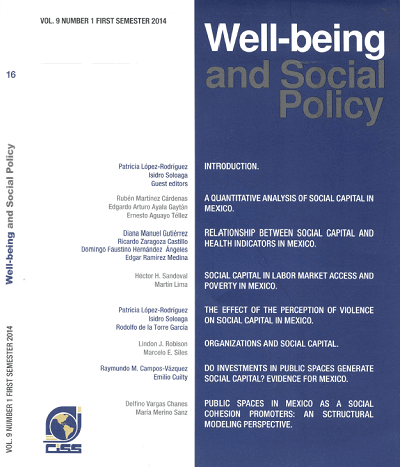
This study analyzes the relationship between social capital types and access to health services in Mexico. To this end, access to healthcare data from the 2006 ENCASU and 2011 ENCAS was validated using 2006 and 2012 ENSANU results. Indicators were found to be consistent. A statistical analysis of the distribution of social capital and health indicators by region, as well as by rural or urban area, was performed. Later, the correlation between these indicators was analyzed. A positive and significant relationship was identified between bonding social capital and access to health. With regarás to bridging capital, no significant results were obtained, however disaggregation based on associations demonstrated that at least some associations are related to access to health; a point later confirmed through the use of a pseudo-panel data model involving triennial age, gender and indigenous status cohorts.
